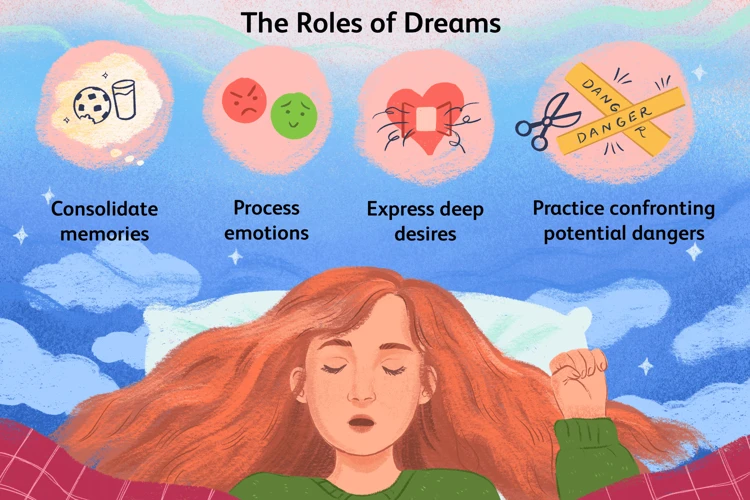Have you ever woken up in a cold sweat after witnessing a murder in your dreams? Dreams have always been mysterious and intriguing, leaving us questioning their meaning and significance. One particularly unsettling type of dream is when we find ourselves as witnesses to a murder. What could this possibly mean? Is it just a random occurrence or does it carry a deeper message? In this article, we will delve into the world of dreams and explore the psychology behind witnessing murders in our sleep. By understanding the different interpretations and possible explanations, we can gain valuable insights into our subconscious mind and find ways to cope with these unsettling nightmares.
Understanding Dreams and their Significance

Dreams have long been a source of fascination and intrigue for psychologists, philosophers, and everyday people alike. They are a window into our subconscious mind, often reflecting our fears, desires, and unresolved emotions. While some dreams may seem random or nonsensical, they often carry deeper meaning and symbolism. They can provide insights into our innermost thoughts and feelings, helping us make sense of our waking lives. By analyzing and interpreting our dreams, we can gain a better understanding of ourselves and the world around us.
The Psychology Behind Witnessing Murders in Dreams

Witnessing murders in dreams can be a disturbing and unsettling experience, leaving us wondering about the underlying psychological factors at play. One possible explanation is that these dreams may stem from unresolved fears and anxieties in our waking lives. The act of witnessing a murder represents a heightened level of danger and threat, which could be a manifestation of the subconscious mind trying to process and make sense of these fears. Additionally, dreams are often symbolic, and witnessing a murder may symbolize a deeper emotional or psychological conflict that needs to be addressed. It is important to explore the specific details and emotions associated with the dream to gain a clearer understanding of its significance.
1. Unresolved Fears and Anxieties
One possible explanation for dreaming about witnessing murders is related to unresolved fears and anxieties. Dreams often serve as a way for our subconscious mind to process and confront these deep-seated emotions. The act of witnessing a murder in a dream may symbolize the presence of intense fears or anxieties that we have not yet fully addressed in our waking lives. It could be a manifestation of our concerns about personal safety, vulnerability, or the fear of losing someone we care about. By acknowledging these fears and working towards resolving them, we may be able to reduce the occurrence of such unsettling dreams and find a sense of peace within ourselves.
2. Symbolic Representation
In dreams where we witness murders, the violence and gruesome imagery can be deeply unsettling. However, it’s important to remember that dreams often use symbolic representation to convey messages from our subconscious mind. The act of witnessing a murder in a dream may not necessarily indicate a literal event but rather symbolize something else in our waking lives. For example, witnessing a murder could represent a sense of powerlessness, fear, or a feeling of being overwhelmed by a particular situation. It may be helpful to reflect on the emotions and circumstances surrounding the dream to gain a deeper understanding of the symbolic meaning within it.
3. Emotional Trauma and Unconscious Processing
Emotional trauma and unconscious processing play a significant role in understanding dreams about witnessing murders. Our minds have a remarkable ability to process and cope with traumatic experiences, even when we are not consciously aware of their impact. These dreams may be a manifestation of unresolved emotional traumas or distressing events that we have experienced in our past. Our subconscious mind uses these dreams as a way to process and heal from these deep-seated wounds. It is important to recognize that these dreams do not necessarily indicate that we desire violence or harm, but rather serve as a reflection of our mind’s attempt to come to terms with our emotional challenges and find a sense of resolution.
Interpreting Different Types of Witnessing Murder Dreams

When it comes to interpreting different types of witnessing murder dreams, understanding the specific dynamics within the dreams can provide valuable insights into their significance. One common scenario is where the dreamer is the witness to the murder, observing the crime firsthand. This type of dream may reflect feelings of powerlessness or vulnerability in waking life. Alternatively, some dreams may depict the dreamer watching the murder from afar, creating a sense of detachment or emotional distance. In these cases, it could indicate a subconscious need to detach from or avoid confronting a difficult situation or emotion. Another variation is when the dreamer witnesses multiple murders, which may symbolize a sense of overwhelm or feeling overwhelmed by various stressors or challenges. By analyzing the specific dynamics within these dreams, individuals can gain a better understanding of the underlying subconscious messages and explore ways to address their fears or unresolved emotions effectively.
1. Being the Witness
- Being the Witness: One common type of dream about witnessing murders is actually being the witness to the crime. In these dreams, you may find yourself in the presence of a violent act, feeling a deep sense of fear and helplessness. This dream could symbolize feelings of powerlessness or being unable to intervene in a situation in your waking life. It may suggest that you are experiencing a situation where you feel like an observer rather than an active participant. It is important to reflect on the specific details and emotions in the dream to gain a deeper understanding of what it might be representing in your life. If you want to learn more about dream symbolism, you can check our article on hearing knocking in your dream.
2. Watching from Afar
Watching a murder unfold from afar in your dreams can elicit strong feelings of powerlessness and fear. In this type of dream, you may find yourself as a passive observer, unable to intervene or stop the violent act. This dream scenario often symbolizes a sense of detachment or disconnection from a situation or relationship in your waking life. It could indicate that you feel like an outsider, excluded or removed from significant events or conflicts. The distance between you and the murder scene may represent a psychological or emotional barrier that you have erected to protect yourself from experiencing pain or trauma. Exploring these feelings of detachment and examining the underlying causes can help you gain insights and take steps towards resolving any issues that may be causing these dreams.
3. Witnessing Multiple Murders
Witnessing multiple murders in a dream can be particularly disturbing and unsettling. This type of dream often signifies a high level of anxiety, stress, or overwhelming emotions in your waking life. It may indicate that you are feeling overwhelmed by various challenges or situations that are causing you significant distress. Additionally, it could symbolize feelings of powerlessness or a lack of control over certain aspects of your life. Exploring the underlying emotions and identifying potential triggers or stressors can help you address these issues and find ways to regain a sense of stability and control in your life.
Coping Strategies for Dealing with Nightmares
Dealing with nightmares can be a challenging and unsettling experience, especially when they involve witnessing murders. However, there are coping strategies that can help alleviate the distress and provide relief. Journaling and self-reflection can be powerful tools for processing and understanding the emotions and themes behind the nightmares. By writing down the details of the dream and exploring any connections to real-life events or emotions, individuals can gain insight into the underlying causes of their nightmares. Additionally, seeking professional help, such as therapy or counseling, can provide a safe space to discuss and work through the emotional impact of witnessing murders in dreams. Therapists can offer guidance and techniques to manage the distress and provide support in navigating any unresolved traumas or anxieties. Lastly, relaxation techniques and mindfulness can help calm the mind before bed and enhance overall sleep quality. Practices such as deep breathing, meditation, and creating a soothing bedtime routine can promote a sense of peace and reduce the likelihood of nightmares. By implementing these coping strategies, individuals can take proactive steps towards managing their nightmares and finding a sense of inner tranquility.
1. Journaling and Self-reflection
Journaling and self-reflection can be powerful tools in coping with nightmares, including witnessing murders in dreams. By writing down your dreams and reflecting on their meanings, you can gain a deeper understanding of your subconscious thoughts and emotions. Keeping a dream journal allows you to track recurring themes or symbols and identify any patterns that may emerge. You can also explore possible connections between your dreams and your waking life experiences. This self-reflective practice provides an opportunity for introspection and personal growth. Additionally, it can be helpful to seek guidance from a professional therapist or dream analyst who can provide further insights into the significance of your dreams.
2. Seeking Professional Help
- Seeking Professional Help: If you find that your dreams of witnessing murders are causing significant distress or interfering with your daily life, it may be beneficial to seek the guidance of a mental health professional. A trained therapist or counselor can provide a safe space for you to explore the deeper meanings behind your dreams and help you process any unresolved emotions or trauma. They can offer valuable insights, coping strategies, and support tailored to your specific needs. Don’t hesitate to reach out for help if you feel overwhelmed or if your dreams are affecting your overall well-being. Remember, you don’t have to navigate this journey alone. (source)
3. Relaxation Techniques and Mindfulness
When it comes to coping with nightmares and disturbing dreams, relaxation techniques and mindfulness can be powerful tools. Engaging in relaxation exercises such as deep breathing, meditation, or progressive muscle relaxation can help calm the mind and reduce anxiety before bedtime. These practices promote a sense of peace and tranquility, making it easier to fall asleep and potentially reducing the occurrence of unsettling dreams. Additionally, incorporating mindfulness into your daily routine can enhance your self-awareness and help you stay grounded in the present moment. By practicing mindfulness, you can develop a stronger connection to your thoughts and emotions, allowing you to recognize and address any underlying issues that may be influencing your dreams. Embracing relaxation techniques and mindfulness can be an effective strategy for managing nightmares and promoting a restful night’s sleep.
Conclusion
Witnessing murders in dreams can be an unsettling and distressing experience. However, it is important to remember that dreams are highly subjective and personal to each individual. While there may be common themes and interpretations, the true meaning can only be deciphered by the dreamer themselves. By exploring the psychology behind witnessing murders in dreams and analyzing the different types of dream scenarios, we can gain a deeper understanding of our subconscious mind and the unresolved emotions it may be trying to process. If these dreams continue to cause distress, seeking professional help can provide guidance and support in navigating through these unsettling experiences. Remember, dreams are a reflection of our innermost thoughts and feelings, and by paying attention to them, we can gain valuable insights into ourselves and our emotional well-being.
Frequently Asked Questions
1. Can dreams actually predict the future?
While it might be tempting to believe that dreams can predict the future, there is no scientific evidence to support this claim. Dreams are a product of our subconscious mind and are more likely to reflect our current thoughts, emotions, and experiences.
2. Why do some people have more vivid dreams than others?
The vividness of dreams can vary from person to person. Factors such as sleep quality, stress levels, and individual brain chemistry can all contribute to the intensity of dreams. Additionally, some people may simply have a more active imagination.
3. Do recurrent dreams have a specific meaning?
Recurrent dreams may suggest that there are unresolved issues or emotions that need to be addressed. They can serve as a signal from our subconscious to pay attention to certain aspects of our lives that we may be neglecting.
4. Why do dreams seem so real?
Dreams can feel incredibly real due to the brain’s ability to simulate sensory experiences. During REM (rapid eye movement) sleep, the brain is highly active and creates a virtual reality-like environment, complete with sights, sounds, and even physical sensations.
5. Do all dreams have meaning?
While all dreams have potential meaning, not all dreams hold deep significance. Some dreams may simply be a reflection of our daily experiences or a replay of recent events, while others may carry deeper symbolism and messages.
6. Can dreams help us solve problems?
Dreams can sometimes provide insight and creative solutions to problems we may be facing. By tapping into our subconscious mind, dreams can offer new perspectives and ideas that we may not have considered while awake.
7. Can traumatic events affect our dreams?
Yes, traumatic events can have a significant impact on our dreams. The emotional intensity of these experiences can manifest in our dreams, often in the form of nightmares or recurring themes related to the traumatic event.
8. Can lucid dreaming be learned?
Yes, with practice, some individuals can learn to have lucid dreams – dreams in which they are aware that they are dreaming and can even control the dream narrative. Techniques such as reality checks and keeping a dream journal can help facilitate lucid dreaming.
9. Are there any benefits to analyzing our dreams?
Analyzing our dreams can provide valuable insights into our subconscious mind and help us gain a deeper understanding of ourselves. It can also assist in processing emotions, identifying patterns, and finding resolution to unresolved issues.
10. Can medication affect our dreams?
Yes, certain medications, such as antidepressants, sleep aids, and even some herbal supplements, can impact the content and vividness of our dreams. If you notice significant changes in your dream patterns after starting a new medication, it is important to consult with your healthcare provider.






